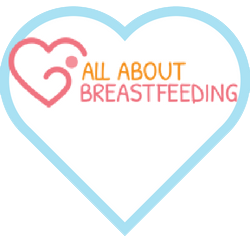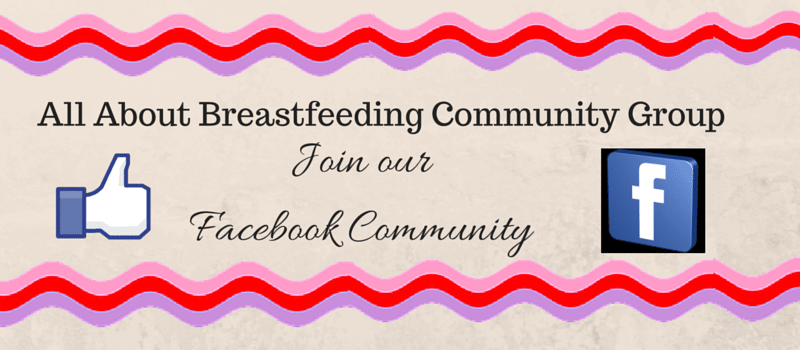On last weeks show, I covered 5 topics that you may not have known about breastfeeding. Included in the 5 topics was some information about colostrum and on last weeks show, I told you that I was going to give you a lot more information about colostrum on today’s show. I wanted to start off by asking you to –
Raise your hand or if you are driving or supporting your breast and baby while listening to this show, then just nod your head
IF you have ever had anyone tell you: Your milk is not in yet!
I can see all those hands going up and an audience of thousands who are nodding their head. This is just one of the many annoying and untrue statements that are told to mothers, many on the very first day there baby is born. One might think that breastfeeding mothers are being told that there milk is not in yet by uneducated family and friends or by hospital staff who are not breastfeeding experts. While this is very true and I would say this is where the majority of these statements originate from, however, recently on one of my virtual groups of breastfeeding professionals, one member addressed this very issue in a post and I could tell by how she worded it that she was getting fed up with this bad information being given out. I am not going to quote her post word for word, but here is the gist of it.
This is a PSA – a public service announcement:
She begged for all lactation professionals, especially those who work in hospitals in labor and delivery and postpartum units… She begged them: Please stop telling parents that their milk will come in on Day whatever… This is bad information because it gives parents the impression that colostrum is not milk and that they don’t have anything to feed their baby until their milk comes in. She suggested that the correct language to use is “volume increase.”
Now I don’t personally know this person, however, I suspect that she is like me. I hear these myths over and over again and a majority of the time, I respond to parents appropriately and with the correct information. However, this can get tiring and once in a while we just blow up!
We are human, after all. Yes, it is our job, and yet once in a while, we have just had enough. I have definitely been known to go on a rant about this because when this happens to a mom we are working with, we realize that they are more likely to supplement because she is afraid she does not have what her baby needs to keep hydrated and get enough calories.
You might be asking: Well, if this is not true Lori, why do we hear this all the time?
Frankly, other than telling you that this happens over and over again, like my colleague stated, in maternity/mother baby units all around the world – I really have no good answer except that I believe it is a lack of education and a mistrust in our ability to make milk for our babies.
Colostrum – I truly do wish that I had a dollar for every single new mother who tells me that she was told by someone during her hospital stay that “her milk is not in yet.” She has a hungry baby, who may be a bit fussy, may be crying, may not settle down, may not latch on, may fall asleep at the breast…. and she is told – your milk is not in yet. That is why your baby is fussy or won’t latch on or falls asleep at the breast. Perhaps their baby has not been fussy at all and perhaps just cries when he is hungry, but the weight loss is determined to be more than appropriate or the baby is jaundiced – in both these instances moms are frequently told that “their milk is not in yet.”In my private practice, I see moms who have given birth in hospitals, in birthing centers and at home. While it is less likely that, when giving birth at home or a birthing center, that a mom is told that their milk is not in yet, I see this happen a whole lot more in hospitals. It happened all the time when I worked as an LC in the hospital. It is so rampant that I hear it on a regular basis when I visit with moms. It happened twice this week already and it is only Thursday. This is exactly why this post that I referred to really struck a chord deep enough for me to want to talk to you about it.
Here is something for you to contemplate:
When I ask moms – how was it determined that they have no milk, here are some of the most common answers: First I will just say, just don’t shoot the messenger. I am just telling the the crazy stuff moms are told:
This is why your baby is crying, they are hungry.
This is why your baby is falling asleep- they cannot get any milk out.
If you had milk, your baby would be interested in latching on.
Your breasts are still very soft.
Your nipples are inverted and the milk can’t come out.
With their hands on moms , squeezing her breasts – see no milk is coming out.
Or my favorite one: they see a glistening of fluid that is clear in color and say that it is not milk yetDo you want to hear my responses to all 7 of these common claims? Here goes:
This is why your baby is crying, they are hungry. Well, now… babies cry for various reasons and how they can prove that the single reason your baby is crying is because they are hungry. Some babies have a full belly and they cry because they are working out some belly stuff or they have been put down and want to be held. They cry because they have a dirty diaper and babies cry because perhaps they are hungry and maybe their mommy has put them to just one breast because they were told to do that and not told to offer both breasts per feeding… another piece of bad breastfeeding information.
This is why your baby is falling asleep – they can’t get the milk out. There are reasons for babies falling asleep also. Perhaps they are being woken up on an every 2 hour schedule and are truly not hungry yet. Perhaps they do not have the best of latch and are struggling to get the milk out for this exact reason. Some people think babies should be spending specific time for every feeding and this also is bad information. I see moms all the time telling me this. What I see happening? Baby actually had a good feeding, but they are trying to keep their baby awake for a designated time period, perhaps 20 minutes because that is what they have been told. Could their baby have a full belly, but keep “falling asleep” because they are one?
If you had milk, your baby would be interested in latching on. Ohhhhhh,,, another major pet peeve of mine. This is such a load of you know what? So, your baby is not latching on? Meaning they have not even tried to suck and get milk out? Given the fact that they have not even tried, what would lead me to believe that your baby knows there is no milk? I mean, come on. Your newborn baby does not know whether or not you have milk or not. You should see the look on the face of a person who just told a mom that she has no milk, when I ask: If the baby did not even latch on, how do you know the baby knows there is no milk? If they didn’t try, how do they know? Yup, they are stumped to find a good enough answer.
Your breasts are still soft! This one makes me scream and this one tells me very clearly that whoever this person is that tells a mom this, clearly, very, very clearly, knows absolutely nothing, zero, nada about lactation. Most new mothers of babies a day or two old have soft breasts & this absolutely does not mean she does not have milk for her baby. Good Grief – when I over hear anyone saying this, I have to hold myself back from gritting my teeth and showing them a mean face. It is very common for a newly pp mom to have very soft breasts and have lots and lots of beautiful colostrum. This is very normal.
Your nipples are inverted and the milk can’t come out! Again, clearly this person knows nothing about breasts, how they make milk, how the milk comes out. Inverted nipples may make it more difficult for babies to latch on, however, this has absolutely nothing at all to do with milk volume. This person who said this nonsense, has clearly told me, in no uncertain terms that they know nothing about lactation. If they did, they would know that the baby is not suppose to be latching onto her nipple, whether it is everted, inverted, flat, small, medum or large size nipple – this has nothing to do with whether or not she has milk. I mean, come on….
When moms tell me that a provider squeezed their breasts, did not get any milk dripping out – well this is just a bunch of nonsense. Can you imagine just having given birth, possibly in a strange environment, with mostly strangers all around you and having a stranger come along, put their hands on your breast and squeeze them. I don’t know about you, but all of this is just stranger then strange to me and it would not be uncommon for moms to tighten up and hold the milk in. We need to relax in order to let the milk flow. Plus, I becha anything, this person is not on the list of the best milk hand expression list. Okay, I am making a bit of a joke about this, however, I learned in my early days as a lactation student, hand expression is a learned art and I bet that the first 20-30 times I did this for mothers, I just did not get any milk. Even now, when I hand express for a mom, who is even filled with milk, if I don’t get to that sweet spot, I can be compressing her breast and no milk is flowing out of her nipples. Yes, I have absolutely positively been in the room with some pp nurses with 20 years experience not be able to hand express milk and I come in right after her and can easily collect a few mls. in a minute or so. I love nothing better then coming into a room where a mom is read to feed her baby formula from a bottle because her nurse just tried hand expression and got nothing. Always with permission asked first, I love nothing better then to do a few minutes of hand expression and get the milk flowing. I am no magician, but some mothers and fathers act as if I just did a magic trick. What do you think I do next? Each one, teach one. I show her how to do this herself and this typically brings miles of smiles to her lovely face. Telling a mom that she has no milk, Bah Milk Fairy! There is plenty of milk in them there breasts!
When moms are told they have no milk just because the liquid that was expressed was clear… Nonsense again. Clear, yellowish, even orangish or slightly bluish….. people see all sorts of different colors…. does not matter. This is all milk. The person who says this also knows very little about lactation because if they did, they would know that not all early milk is yellow.If you have been the recipient of any of these stupid statements, ignore, ignore, ignore and as soon as you can, find someone else to help you with breastfeeding. You came into breastfeeding feeling confident – don’t let this poor information change your mindset to worry, worry, worry. What would I do under these circumstances, well knowing that there actually is a very, very small percentage of women who truly do not produce any milk, I would go on the assumption that she does have milk and work at debunking these lies you have been told. Often times this means taking a little more time with moms and assessing the breastfeeding. Showing her hand expression and prove the others are wrong, ensuring she has the best latch possible, discussing colostrum and the incredible changes her breasts and milk will go through over the next few days. Spending time with a mom and reviewing early breastfeeding behavior of newborns – all this can totally change a mom who has now become frantic with worry to a mom whose anxiety level has been greatly reduced and watch her confidence level return.
In addition to knowing that it is very likely your milk is in, what else do I want you to know about colostrum?
The first thing is, yes: Your milk is in. We have a name for the very first milk your baby receives and it is called colostrum. I am now going to talk about one of my favorite subjects. Colostrum! Parents all over the world have personally told me that this information is exactly why they decided to breastfeed. Parents all over the world have told me that this information is exactly what helped continue to motivate them to work hard through breastfeeding challenges. Knowledge is Power!
:Colostrum is an amazing food which meets all the needs of your newborn baby. It is packed filled with valuable nutrients. Your newborns stomach is small, about the size of a small marble and has the capacity to hold about 5-7 mls of fluid, which is about half an ounce or if you picture a teaspoon of fluid, this is about how much colostrum your baby gets from feedings the first day of life.
This food is in enough volume to meet the needs of your healthy full term newborn. It is a perfect match to your baby’s stomach.
There is a lot of misinformation coming from people who are uneducated about human milk and breastfeeding. They think that a low volume of milk equals not enough food for your baby and that your baby needs formula to fill their belly. This is because they don’t understand that colostrum has exactly what your baby needs for their first few days of life. They also don’t understand how milk is made and that frequent breastfeeding and milk removal will help to increase the volume of milk you make. They also don’t understand that as your volume of milk gradually increases, your baby’s stomach stretches and is able to gradually take in larger quantities of milk.
Colostrum is considered the first immunity (or vaccination) your baby receives because it is high in protective antibodies and white blood cells, which destroy bacteria. It also has probiotics and prebiotics, none of which are found in infant formula milk. Babies are born with an immature immune system and they are biologically designed to transition from getting all their nutrients passed on from you to them in the womb, to having all their vital nutrients passed on through your milk. You milk contains Probiotics are the friendly bacteria and prebiotics are the food that feeds the good bacteria! Breastmilk helps the good bacteria colonise your baby’s gut, helping to prevent the bad bacteria from growing and causing illness. These vital nutrients are not available in formula.
Unless you are in the extremely small percentage of new mothers who truly are not making any milk, you need to know that:
Colostrum is produced during your pregnancy beginning somewhere around the 4th month or so. It ranges from a light clear fluid to an orangey yellowish colored fluid and it is a thick and sticky amazing life supporting fluid. It consists of thousands of living cells which help to defend your baby against many harmful agents. Your colostrum is heavily concentrated with immune factors. It is easy to digest, low in fat, and high in carbohydrates, protein and chock full of antibodies, making it the perfect food for your baby.
Human milk has been studied and researched and we are finding out more about this amazing fluid. It is rich in sodium, potassium, chlorides, protein, fat soluble vitamins and minerals. Less fat and less lactose than more mature milk.Now this is not all that it has, however, my point is, that colostrum is more of some and less of other nutrients, which tells us that the newborn has different nutritional needs the first few days, then they do as the days go on. As your baby grows and develops, your babies needs change & amazingly enough, your milk changes to meet their needs. Milk of moms whose babies are born premature also have different nutrients and in different quantities – again specially made for their own baby.
Here is some amazing facts about how amazing your pregnant body is and how it is already providing for your baby –
Your baby received sufficient quantities of antibodies through your placenta that is needed during pregnancy. We hear so much about antibodies and how important they are and yet not everyone knows exactly what antibodies do. Allow me to get just a bit geeky for a few minutes as I explain just a little about the world of antibodies and their purpose. Antibodies are proteins and one important protein is called secretory immunoglobulin G or IgG and they are transferred to your baby through your placenta. IgG is the most abundant type of antibody and it protects against bacterial and viral infections. Can you even begin to imagine how crazy good your body is already doing by ensuring your baby gets IgG during pregnancy.
Once your baby is born, it no longer has access to all these great and wonderful nutrients that are specially made just for your newborn. That’s okay though. There is a big takeover happening!
I am going to talk a little bit about your placenta right now as it relates to early newborn breastfeeding. In next weeks show, I am going to talk in greater detail about this fabulous organ that I call the amazing placenta.
By definition – the placenta is a large organ that develops during pregnancy. It is attached to the wall of the uterus. The umbilical cord connects the placenta to your baby. One of the purposes of the placenta is to allow blood from the mother to pass through the placenta, filtering oxygen, glucose and other nutrients to your baby via the umbilical cord. The placenta produces hormones that are needed to support a healthy pregnancy. These hormones are lactogen, estrogen and progesterone. The placenta also passes on antibodies to protect your baby after birth. However, the placenta can only pass on antibodies that you already have. This is important information to note as you will see how this relates to breastfeeding.
During the third stage of labor, your placenta comes away from the uterine wall and is expelled from the uterus, with a few pushes. Your body has a wisdom of its own and recognizes that since the baby is no longer inside your womb, that its job is done. When you have a cesarean birth, your placenta is manually removed.
When your baby is born, it sets in motion a whole slew of amazing things happening in your body. The placenta is no longer providing any protection to your baby. This is where you breasts come in. The activity of breastfeeding provides your baby with additional antibodies they need for ongoing protection against viruses and bacteria. As your baby breastfeeds, he or she receives a continuous supply of antibodies and vital nutrients meant for your baby to have for proper growth and development.
Now that your baby is born, he or she will get the antibodies through the colostrum. Here is where some more magic happens. Another antibody your baby needs is called secretory immunoglobulin A (IgA) which is a new substance to the newborn. This protects the baby in the places most likely to come under attack from germs, namely the mucous membranes in the throat, lungs, and intestines.
Colostrum also serves another very important purpose. It has a laxative effect on their system. This is necessary as it helps them pass early stools, which are called meconium. Adequate Peeing and stooling are very important for newborns.
I am often asked what is so special about colostrum. I love answering this questions because it gives me the opportunity to tell them fascinating tidbits such as:
Colostrum provides the gastrointestinal tract with a barrier that helps to prevent foreign substances from penetrating the gut. This early milk, the colostrum plays such an incredibly important role in this. At birth, a newborns intestines are very permeable, which means that it allows liquids to pass through it. The colostrum seals the holes by coating the GI tract with a barrier which mostly prevents foreign substances from penetrating and possibly sensitizing a baby to foods the mother has eaten.
This is why you hear so often that breastfed babies are healthier. Human milk provides a barrier so that less bacteria can get to the baby and make them sick. Is this foolproof? No it is not. Is it like giving your babies several layers more of protection than not having any? Absolutely. Remember that Colostrum also contains high concentrations of leukocytes, which are protective white cells which can destroy disease causing bacteria and viruses
In the first 4 days of life, it is normal for a baby to lose some weight. About 5-7 oz in 4 days is fairly normal. By Day 5, as their appetite increases, their need for fluids increase, your supply increases from frequent feedings and with this combination and the change from colostrum to transitional milk that meets their needs, your baby now begins to put back the weight on and by 2 weeks of age should be back to their birth weight.
A few words about babies who are born early. During the third trimester, you pass vital nutrients to your unborn baby. When babies are born prematurely, they miss the opportunity to receive, absorb and store these vital nutrients. Premature babies have a digestive tract that is not yet fully developed. They are at greater r isk for getting an infection. The latest research shows that the absolute best, 100% best, medicine for your baby, hands down is your colostrum. Remember before when I said that the colostrum paints the digestive tract of a healthy full term newborn. Well just think if the digestive tract is not yet fully developed, how many more holes can be poked in it, allowing the bad bacteria and viruses in. Well, colostrum saves the day by coating their GI tract with life saving medicine. Physicians have said that colostrum is your baby’s first vaccine. As science has given us more information about the health benefits of colostrum, the way we take care of premature babies has changed. Over the last 10 years there has been a push to do whatever we can to ensure that premature babies have access to human milk as all the studies have shown that their survival rate is much higher and their hospital stay is much shorter. 20 years ago, I did not know of any hospitals that have access to donated human milk and now there are so many I have lost count.
Infant formula, whether it is in fluid or powder form, whether it comes from cans or bottles, the fact is that this food only has about 40-50 ingredients and none of them are the life saving nutrients that colostrum can offer them. Once you learn some of these detailed juicy bits of information, it begins to make sense why physicians want babies to have the benefits of colostrum. This is the best way we know how to give our babies the healthiest start in life.
You heard me say earlier that colostrum changes to transitional milk by about the 4th, 5th 6th day or so. The color and consistency from this point on will continue to vary from feeding to feeding because of the variations of nutrients at different times as well as the variations in other mothers diet. If you do not pump and your baby gets breastmilk directly from the source, you may never notice these changes. If you are a pumping mom, you will find it interesting to see the variations in color from pumping to pumping. You might also notice the fattier milk that rises to the top if your bottle of pumped milk sits still for a while. Do not worry about how much fat as this will change from pumping session to pumping session and it has no bearing on the quality of your milk. It is all great stuff!
By the way, the volume of colostrum is generally about 1/4 oz per feeding on babies first day of life. Not to say that I have not seen some moms express several tablespoons the first time and an ounce the next day, however, a majority of moms gradually build their supply. 1/4 oz per feeding the first day, to half an ounce at 3 days old and by the time your baby is 5 days old, you can easily be producing a full ounce of milk. The supply gradually increases and over the first 6 weeks or so. This is how this whole milk volume thing works. So, say yes – My milk is in! I have colostrum during pregnancy – the milk is in, the milk is here.
I hope that this information just settles it for you. I hope that this information gives you the confidence to challenge anyone who tells you different. Let them prove you have no milk before you begin supplementing your baby with formula. Why should your baby miss out on life giving colostrum and human milk just because someone does not know their stuff!
As time goes on, more money is put into research and the study of human milk, the more information is learned about the properties of human milk and just how rich and complex food human milk actually is. You may have already noticed that I have a love of learning about the human body, pregnancy, birth and lactation, however, nothing fascinates me more than the human placenta and colostrum. I hope you enjoyed learning about colostrum as much as I enjoyed sharing this information with you.
Your Online Breastfeeding Class
Learn how to breastfeed – Be comfortable. Be confident.
The learning continues well beyond the average breastfeeding basics class that is 60-90 minutes. In this class, we have over 15 hours of audio lessons, combined with many hours of videos to help support what you are learning. We cover breastfeeding and medication safety, what to do if your baby does not latch on, common breastfeeding challenges, tongue tie, premature babies, building a good supply, returning to work and pumping. Take a look at the list below and follow the link to the class page so you can see more specifics of what is covered. I want to ensure that we got you covered and that you have great support well beyond the newborn days.
- Using your pregnancy time to prepare for breastfeeding
- Tips on how to prepare your home for a newborn
- Specific details about the first 24 hours after birth.
- Exactly what to expect the first two weeks after birth
- What can you do if your baby is not latching on
- Common and not so common breastfeeding challenges
- What you can expect over the next few months
- Returning to work as a breastfeeding/pumping mom
- Pumping and storing your milk
- When to begin pumping and building your freezer stash
- How to make a smooth transition to postpartum life
- Lessons dedicated to partners and breastfeeding knowledge.
- Breastfeeding and the 1 year old
- Breastfeeding the toddler and beyond
- Tandem nursing
- Breastfeeding through a pregnancy
- Medication and mother’s milk
- Weaning
Once you register for the class, you have immediate access to:
- Audio Lessons
- Videos
- Educational handouts
- Helpful checklists
- Our “members only” group
- Weekly group LIVE Q&A sessions
Gain confidence in breastfeeding.
Expert advice from Lori J. Isenstadt, IBCLC who has over 25 years of experience in maternal health and lactation. I will help you navigate the ins and outs of breastfeeding.
Listen anywhere and anytime. Imagine not having to sit in a classroom or stare at a screen. You can learn all about breastfeeding while going for a walk, driving to work or running errands, traveling on a plane, train or bus. Because you can download the audios, learning is easy and convenient. Get ready to learn anytime whenever it’s convenient for you and your partner. You can be cooking dinner together and listening to the class. Perhaps relaxing together in the evening in your comfy clothes. You can learn together. Easy access to all class materials. Your class never expires. You’ll be able to listen and download the materials at your convenience.
You are not alone!
Once you are a student in the breastfeeding class, you have regular access to ongoing support for the whole time you are breastfeeding. You can have your questions answered by Lori J. Isenstadt, IBCLC, in our private group as well as our weekly live Q & A sessions. Just check out the Bonuses below to see how I provide you with ongoing support..
Exclusive Bonus #1
Immediate access to a private group for class students only. I will be answering your questions 5 days a week.
Exclusive Bonus #2
Invitation to join our weekly Q & A session with Lori and other students.
Exclusive Bonus #3
Need additional help? *25% discount off a private consult – for students only.
*If you are in the Phoenix metro area. use this link to schedule your Office or Home lactation consult.
*If you are out of the area, use this link to schedule a Skype call
Do you have a question about the class before you purchase? Send it to – aabreastfeeding@hotmail.com
 Register for the Breastfeeding class
Register for the Breastfeeding class
http://www.aabreastfeeding.com/audioclass
Additional ways to connect with me:
Like us on Facebook HERE:
http://bit.ly/2dNPlsC
Follow us on Twitter HERE:
@breastfeedingaz
http://bit.ly/2BfEIJ2
Follow us on Pinterest HERE:
https://www.pinterest.com/lorijisenstadt
Subscribe on iTunes the All About Breastfeeding show HERE:
https://apple.co/2FJGwsV
 Lori Jill Isenstadt, IBCLC is a huge breastfeeding supporter. She has spent much of her adult life working in the maternal health field. Once she became turned on to birth and became a childbirth educator, there was no stopping her love of working with families during their childbearing years. Lori became a Birth doula and a Postpartum doula and soon became a lactation consultant. She has been helping moms and babies with breastfeeding for over 25 years. Lori founded her private practice, All About Breastfeeding where she meets with moms one on one to help solve their breastfeeding challenges. She is an international speaker, book author and the host of the popular itunes podcast, All About Breastfeeding, the place where the girls hang out. You can reach Lori by email at: aabreastfeeding@hotmail.com or contact her via her website: allaboutbreastfeeding.biz/contact
Lori Jill Isenstadt, IBCLC is a huge breastfeeding supporter. She has spent much of her adult life working in the maternal health field. Once she became turned on to birth and became a childbirth educator, there was no stopping her love of working with families during their childbearing years. Lori became a Birth doula and a Postpartum doula and soon became a lactation consultant. She has been helping moms and babies with breastfeeding for over 25 years. Lori founded her private practice, All About Breastfeeding where she meets with moms one on one to help solve their breastfeeding challenges. She is an international speaker, book author and the host of the popular itunes podcast, All About Breastfeeding, the place where the girls hang out. You can reach Lori by email at: aabreastfeeding@hotmail.com or contact her via her website: allaboutbreastfeeding.biz/contact
your email address will not be published






